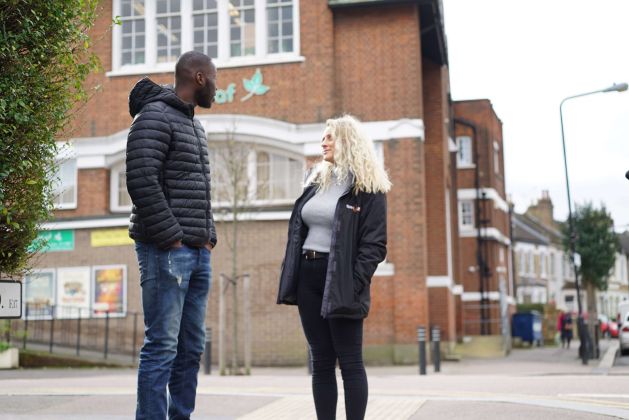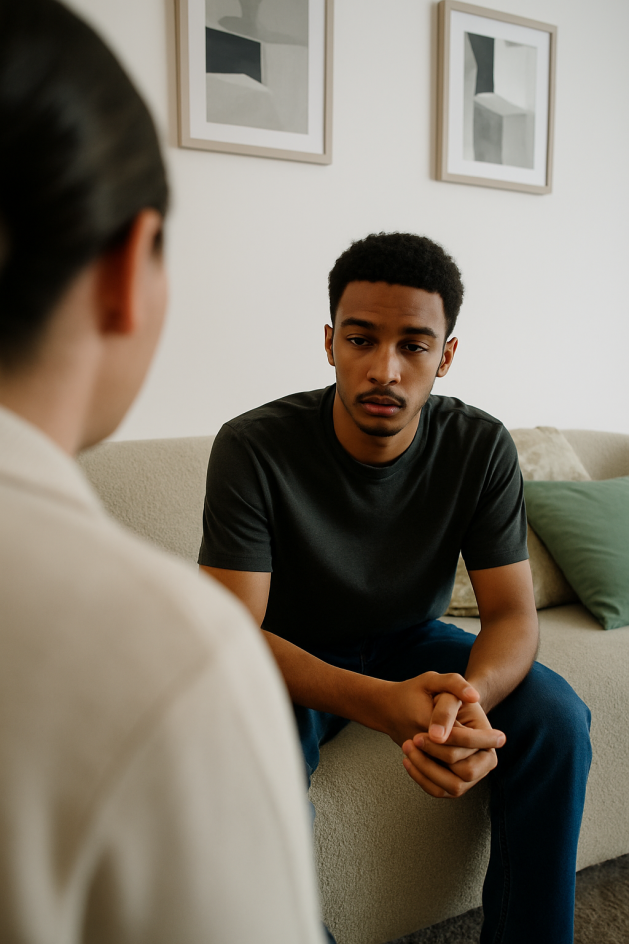Our impact

Outputs and outcomes
Outputs and outcomes
Last year...
1-1 Therapeutic Mentoring in the community.
our assemblies in schools.
1-1 mentoring in schools.
group mentoring in schools.
Our approach to evaluation
Our approach to evaluation
Our 2025 evaluation strategy involves three core evaluation strands:
- Case study typologies – to clarify what mentoring looks like in practice and identify the different types of needs young people bring into the programme.
- Impact study – to explore not only whether mentoring is effective against our eight outcomes, but also the mechanisms through which change is achieved.
- Value for money analysis – to support a business case for commissioning mentoring as a cost-effective alternative to other statutory services.
Alongside the outcomes on the right, we are working to understand the impact of mentoring across a wide range of outcome domains. This includes change for young people (such as wellbeing, agency, relationships, and desistance), professional development for teachers and school staff, and wider institutional shifts in school or PRU settings. These domains are captured through a set of outcomes frameworks designed for each audience.
Each outcome is measured in practice through its measurement ‘indicators’. These are statements of what we’d ‘expect to see’ if the outcome was being achieved in practice.
Taken together, these outcomes inform how we ask our young people impact questions (through surveys, for example), the evaluation designs for our programmes, and provide the end goals for our theory of change. Over the course of 2025-2026 we will be evaluating all of our mentoring programmes (school based; community; and therapeutic), and each evaluation report will be listed here. Our Theory of Change model can be accessed here.
Our outcomes are:
-
Offending & Desistance
-
The ability to reduce and ultimately avoid offending.
-
-
Health & Wellbeing
-
The ability to manage physical fitness and feelings.
-
-
Employability
-
The ability to plan and pursue a career pathway.
-
-
Relationships
-
The ability to make decisions and form positive peer relationships.
-
-
Agency
-
The ability to make positive decisions and choices.
-
-
Citizenship
-
The ability to contribute to local and wider communities.
-
-
Substance Abuse
-
The ability to move away from substance misuse.
-
-
Independent Living
-
The ability to build a life away from offending.
-
How we measure impact
How we measure impact
We use three outcomes frameworks to assess the impact of our mentoring work — linking the change we see in mentees with the wider impact they have on others they come into contact with, and through them, on institutions.
Our Young People’s Outcomes Framework measures change across eight domains, including emotional wellbeing, independent living, decision-making, relationships, and desistance. For school-based work, our Teacher and Staff Framework captures professional changes in confidence, practice, and collaboration.
At the institutional level, our Whole-School and PRU Framework tracks systemic change in areas such as safeguarding, behaviour, transitions, and external partnerships. Each framework includes clear indicators that describe what positive progress looks like in practice. These indicators shape how we collect, analyse, and report data — and ensure that impact is assessed in ways that are meaningful across different settings.
Reports
Reports
In April 2025, we completed the first in a series of external evaluation reports. These are based on case study typologies — a method that groups young people's mentoring experiences into structured categories to help understand how mentoring works for different types young people, and what forms of support are most effective in each case.
In this section, we will be publishing our evaluation reports over the course of the year. These reports are externally produced by independent evaluators.
- Building Trust, Changing Lives – A review of Therapeutic Mentoring. This report explores how trust is built through sustained engagement with young people facing multiple and complex risks.
- Making First Contact – Effective outreach practices in Detached Mentoring. This report focuses on what outreach workers do to reach young people not engaged in services, and how trust begins to form.
- Making Space – How Group Mentoring responds to need in school settings. This report highlights how group mentoring creates space for emotional expression, peer support, and personal growth in school environments.
- Building Resilience and Confidence – A review of Community Mentoring. This report looks at how 1:1 mentoring in community settings helps young people develop confidence, agency, and longer-term resilience.
In August 2025, we will publish our next set of evaluation outputs — a series of impact reports for each mentoring area, alongside a value for money study designed to support future commissioning decisions.
Our theory of change links Spark2Life’s strategic goals: reducing the risk of youth offending and violence; supporting re-engagement with education, employment, or training; improving emotional wellbeing and personal agency; and strengthening community safety and cohesion to the operational outcomes we expect to achieve through programme delivery.
In this way, we can show how our core strengths: staff expertise, programme quality, and strong sector partnerships — contribute to the long-term outcomes we want to achieve for young people and the organisations we work with.
Our 2025–27 theory of change can be downloaded here.
Testimonials
Testimonials
Hear from our young people, the professionals we work with and read the stories of some of young people's successes.
"I absolutely love working with Spark2Life and think that you are incredible organisation who does fantastic work, which has a huge impact on our young people."
- Emily Sayer, Head of Personal Development - Holy Family Catholic School
We have had the privilege of supporting nearly 40,000 young people since we embarked on our mission in 2006.
Each young person is important to us and making an impact on their life is invaluable. Read their stories here.




















